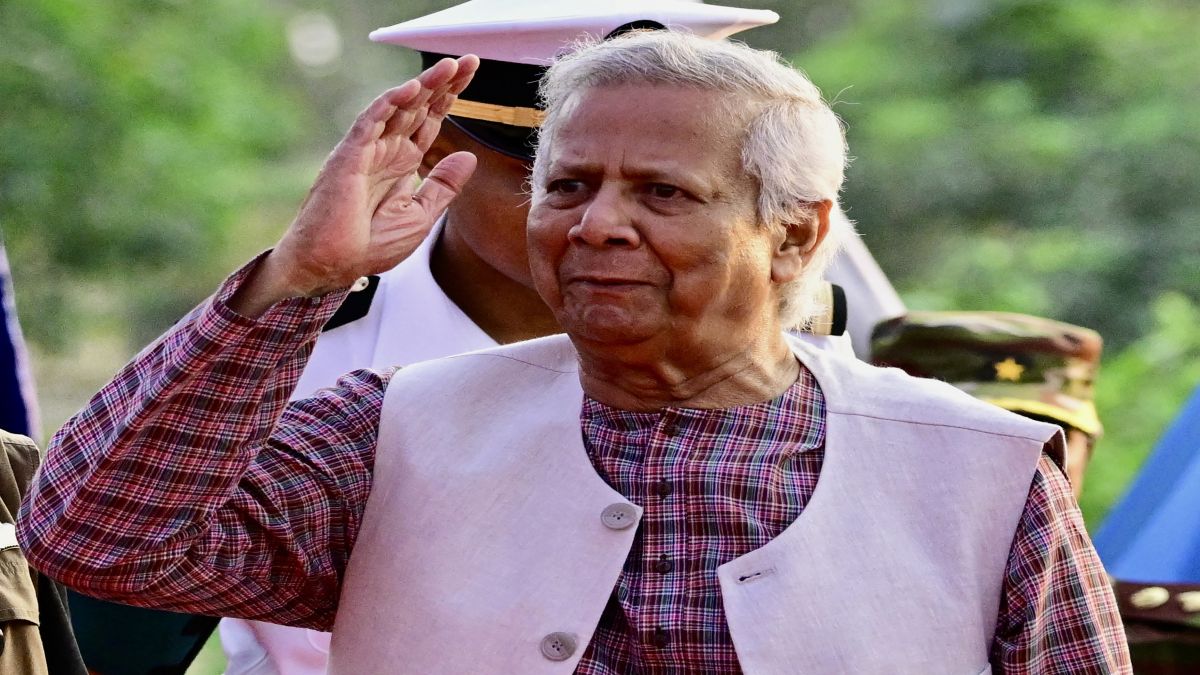Is Dr Muhammad Yunus, chief advisor of the interim government in Bangladesh, on the verge of resigning? That’s the question everyone is asking as speculation grows that the Nobel laureate is finding it increasingly difficult to work because political parties are unable to reach a common ground.
In fact, news reports state that on Thursday evening, National Citizen Party (NCP) convener Nahid Islam, advisers Mahfuj Alam and Asif Mahmud Shojib Bhuyain, all rushed to Jamuna, Yunus’ official residence to meet with him and placate him.
But what’s the reason for Yunus’ reported frustration? Will he quit? What does it mean for Bangladesh’s future? We take a deep dive and get you all the answers you are looking for.
Yunus threatens to resign
On Thursday (May 22), Professor Yunus reportedly had enough and announced in the most dramatic fashion that he would be resigning as chief advisor to the interim government. It’s important to note here that Yunus was appointer as the de-facto head of Bangladesh last August following the massive student protests that resulted in the ouster of Prime Minister Sheikh Hasina.
The 84-year-old Nobel laureate reportedly told his Cabinet on Thursday that he wanted to quit if political parties did not give him their full support, a source inside his office told AFP. “He wanted to tender his resignation, but his Cabinet members persuaded him not to,” said the source to the news agency.
Bangladeshi newspaper _Prothom Al_o reported that Yunus said in the meeting with his advisers that “what is the point of being the chief advisor if he cannot function properly?”
Following this, National Citizens Party (NCP) convener Nahid Islam , who until recently was a part of Yunus’ Cabinet, met with him at his official residence in the evening. “We have been hearing news of Sir’s (Yunus) resignation since this morning. So I went to meet Sir to discuss that issue . . . He said he is thinking about it. He feels that the situation is such that he cannot work,” Islam told the BBC Bangla after the meeting.
Nahid reportedly urged Yunus not to take any decision in haste. “He should remain strong. He should ensure unity among all parties. I hope everyone will cooperate with him,” Nahid told BBC Bangla.
Information and Broadcasting Adviser Mahfuj Alam and Adviser for the Ministry of Youth and Sports Asif Mahmud also met with the chief adviser during which they tried to convince Yunus to stay on in his position.
A source told Dhaka Tribune: “The chief adviser feels somewhat embarrassed due to the continuous agitation on various issues recently. He does not want to remain in office if he cannot work independently. This situation was discussed during the meeting.”
Reasons behind Yunus’ resignation threat
Yunus’ reported threat to stand down comes amid the political turmoil in the South Asian nation of some 170 million people. In the past week, the interim leader of Bangladesh has been facing a crisis with rival parties stepping up their opposition to Yunus and his running of the country.
One of the biggest criticisms levelled against Yunus is the declaration of elections in the country. Yunus has promised polls will be held by June 2026 at the latest, but supporters of the Bangladesh Nationalist Party demand that he fix a date.
“If the government fails to meet public expectations, it will be difficult for the BNP to continue extending its support,” senior BNP leader Khandakar Mosharraf Hossain told reporters Thursday.
“The highest priority should be placed on announcing a clear roadmap for the election.”
In fact, the BNP has been carrying out massive protests in Dhaka, demanding the swearing-in of their party’s candidate as mayor. The BNP alleges that the interim government has blocked an Election Commission ruling declaring its candidate Ishraque Hossain as the rightful winner of the disputed 2020 mayoral polls. The polls, it was alleged at the time, were rigged by the now-banned Sheikh Hasina-led Awami League.
But that’s not all. Yunus’ working relationship with the country’s military is also deteriorating. The chief advisor and Bangladesh army Chief General Waker-Uz-Zaman are squabbling over the upcoming elections. General Zaman has demanded the Yunus government hold elections by the end of December — the general fears that Yunus is trying to orchestrate his ouster.
There’s also the issue of the ‘humanitarian corridor’ for the passage of logistics and supply of provisions to the Rakhine State in Myanmar. While the Yunus-led government is supportive of this plan, the army chief is opposed to it, causing a showdown between the two.
Another sticking point between Yunus and General Zaman is the appointment of former diplomat Khalilur Rahman, as Bangladesh’s National Security Adviser, a position created by Yunus to, perhaps, offset the military’s control of security matters.
Moreover, it seems that Yunus is losing a grip over his civil administration. On Thursday (May 23), reports emerged that he had fired his foreign secretary , Md Jashim Uddin for not being “in sync" with Yunus.
Tensed future for Bangladesh
Many Bangladeshi watchers fear that Yunus’ threat to resign is actually a ploy to launch a full-blown agitation against the army chief. In fact, social media posts show some activists preparing and planning massive agitations.
This doesn’t bode well for the South Asian nation, which has already been plunged into turmoil since last August. The country’s economy is in doldrums with the World Bank downgrading its economic growth forecast, warning that the country could see its slowest growth in 36 years.
The crisis has been exacerbated by Bangladesh’s estrangement from India, resulting in the loss of several advantages, from bilateral trade opportunities to economic support during times of crisis.
As of now, it’s a waiting game to see if Yunus does go forward with his threat or will he, in fact, quit.
With inputs from agencies


)

)
)
)
)
)
)
)
)



